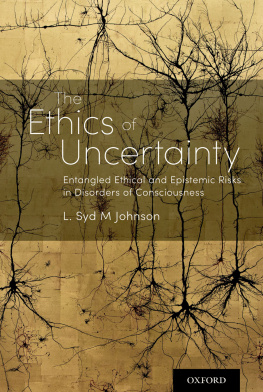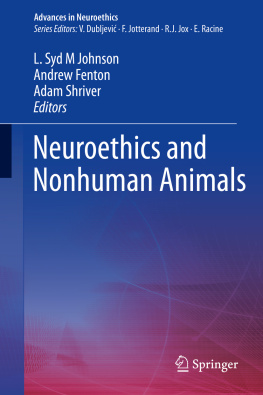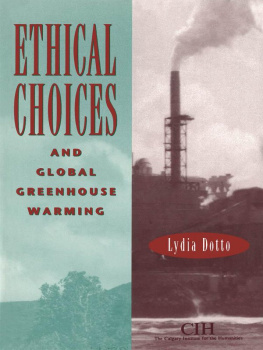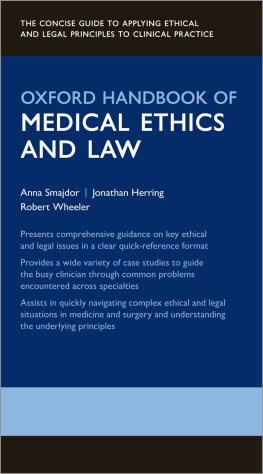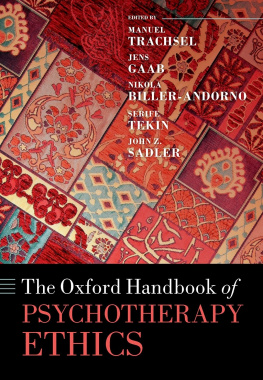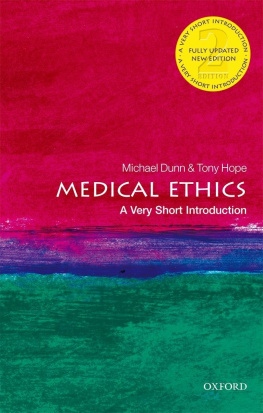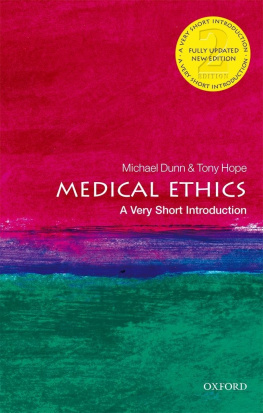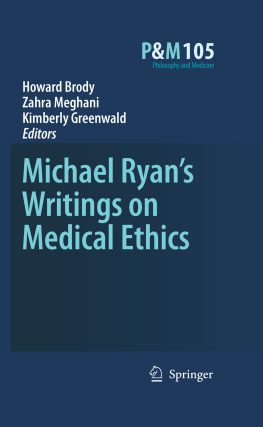The Ethics of Uncertainty

Oxford University Press is a department of the University of Oxford. It furthers the Universitys objective of excellence in research, scholarship, and education by publishing worldwide. Oxford is a registered trade mark of Oxford University Press in the UK and certain other countries.
Published in the United States of America by Oxford University Press
198 Madison Avenue, New York, NY 10016, United States of America.
Oxford University Press 2022
All rights reserved. No part of this publication may be reproduced, stored in a retrieval system, or transmitted, in any form or by any means, without the prior permission in writing of Oxford University Press, or as expressly permitted by law, by license, or under terms agreed with the appropriate reproduction rights organization. Inquiries concerning reproduction outside the scope of the above should be sent to the Rights Department, Oxford University Press, at the address above.
You must not circulate this work in any other form and you must impose this same condition on any acquirer.
Library of Congress Cataloging-in-Publication Data
Names: Johnson, L. Syd M., author.
Title: The ethics of uncertainty : entangled ethical and epistemic risks in
disorders of consciousness / L. Syd M Johnson.
Description: New York : Oxford University Press, [2022] |
Includes bibliographical references and index. |
Identifiers: LCCN 2021031199 (print) | LCCN 2021031200 (ebook) |
ISBN 9780190943646 (hardback) | ISBN 9780190943677 (epub) | ISBN 9780190943653
Subjects: MESH: Consciousness Disorders |
Uncertainty | Risk Managementethics
Classification: LCC R724 (print) | LCC R724 (ebook) | NLM WL 341 |
DDC 174.2dc23
LC record available at https://lccn.loc.gov/2021031199
LC ebook record available at https://lccn.loc.gov/2021031200
DOI: 10.1093/med/9780190943646.001.0001
This material is not intended to be, and should not be considered, a substitute for medical or other professional advice. Treatment for the conditions described in this material is highly dependent on the individual circumstances. And, while this material is designed to offer accurate information with respect to the subject matter covered and to be current as of the time it was written, research and knowledge about medical and health issues is constantly evolving and dose schedules for medications are being revised continually, with new side effects recognized and accounted for regularly. Readers must therefore always check the product information and clinical procedures with the most up-to-date published product information and data sheets provided by the manufacturers and the most recent codes of conduct and safety regulation. The publisher and the authors make no representations or warranties to readers, express or implied, as to the accuracy or completeness of this material. Without limiting the foregoing, the publisher and the authors make no representations or warranties as to the accuracy or efficacy of the drug dosages mentioned in the material. The authors and the publisher do not accept, and expressly disclaim, any responsibility for any liability, loss, or risk that may be claimed or incurred as a consequence of the use and/or application of any of the contents of this material.
The Poems of Emily Dickinson: Variorum Edition, edited by Ralph W. Franklin, Cambridge, Mass.: The Belknap Press of Harvard University Press, Copyright 1998 by the President and Fellows of Harvard College. Copyright 1951, 1955 by the President and Fellows of Harvard College. Copyright renewed 1979, 1983 by the President and Fellows of Harvard College. Copyright 1914, 1918, 1919, 1924, 1929, 1930, 1932, 1935, 1937, 1942 by Martha Dickinson Bianchi. Copyright 1952, 1957, 1958, 1963, 1965 by Mary L. Hampson.
For Zo and Izzy,
and for Mal, who lived and died while I wrote this.
I felt a Cleaving in my Mind
As if my Brain had split
I tried to match it Seam by Seam
But could not make them fit
The thought behind, I strove to join
Unto the thought before
But Sequence ravelled out of Sound
Like Balls upon a Floor
Emily Dickinson (1896)
Contents
This book is primarily about two things. One is disorders of consciousness (DoCs). The other is epistemic and ethical uncertainty, how they interact, and how they might be managed in a way that helps us in thinking about, and making decisions for, patients with DoCs. DoCs are an important case study for what I call the ethics of uncertainty, but they are also what inspired this, an approach to ethics that acknowledges and wrestles with uncertainty. Bioethics should be grounded in reality. It should be down to earth, where theres mud to get stuck in, where we risk getting our hands dirty. It should, if we do it right, increase tension and hold it, confront uncertainty and its implications. This is a work of applied ethics, and particularly, bioethics. I expect and hope that the ethical approach I propose in these pages will have broader applications and implications, beyond DoCs.
Part of what prompted this book, the focus on DoCs, and the embrace of the tensions (from multiple directions and dimensions) is the disorders themselves, their unique history, and their unique place at the center of a number of formative debates in academic bioethics, clinical medicine, and the public sphere. DoCs and especially the vegetative state are familiar to people who have no particular and abiding interests in medicine or bioethics. Theyve heard of the vegetative state (or more likely, the outdated but still widely used term persistent vegetative state). Theyve thought about it, and think they have pretty settled views on what they think about it, and what they would want themselves, should they ever be someone in a vegetative state. I was one of those people for a good chunk of my life. I remember vividly when I was a child and Karen Ann Quinlans legal case was front page news. I accepted the orthodox view that those in a vegetative state were hopeless cases whose lives were without meaning, purpose, or value.
A curious thing happened. In 2009, a case involving a patient named Rom Houben, in Belgium, generated international headlines. Houben had been diagnosed as being in a vegetative state, and he remained that way for two decades, but he was suddenly able to communicate using a method called facilitated communication, in which a therapist helps an individual move their hands across a board or touchscreen, allowing them to form words and sentences. Houben was said to be writing a novel. He reportedly poignantly said of his years of forced silence I screamed, but there was nothing to hear. Steven Laureys, a neurologist and researcher at Belgiums Coma Science Group, reported that Houbens metabolic brain function, as revealed by a positron emission tomography (PET) scan, was nearly normal.
It turned out to be a hoax, although perhaps not an intentional one. Facilitated communication is widely discreditedthe facilitators can, intentionally or not, exercise too much control over what the patient says by guiding their hands. Houbens facilitator later acknowledged that she had unwittingly done that. But the curious case prompted me to look again at DoCs and to appreciate for the first time the unsettling fact of their high rates of misdiagnosis. It was a time of great upheaval, even without hoaxes, when a number of unsettling and remarkable discoveries were being made about DoCs and DoC patients, including research on patients who could respond to commands by controlling their brain activity. Renewed scientific and bioethical interest in DoCs followed.

